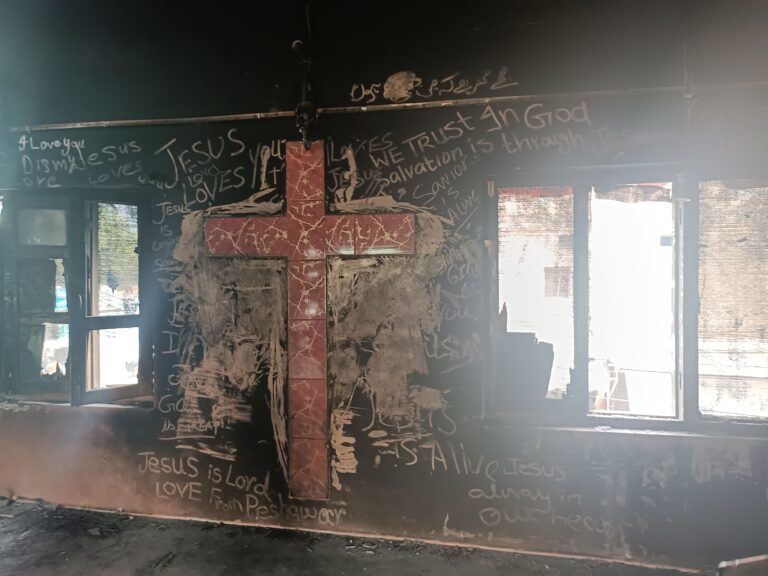
Continuing violence against religious minorities in Pakistan belies the government’s January 8 statement that it promotes religious freedom and protects the members of non-Muslim faiths, rights activists said.
The US State Department on Jan 4 designated Pakistan among countries such as Burma, China and Iran as “Countries of Particular Concern” for having “engaged in or tolerated particularly severe violations of religious freedom.” It called on governments to end communal violence, attacks on religious minorities and lengthy prison terms for peaceful expression.
In response, Pakistan’s Foreign Affairs Ministry issued a statement expressing dismay over inclusion on the list, asserting that it was based on “biased and arbitrary assessment” and was “detached from ground realities.”
“Pakistan is a pluralistic country, with a rich tradition of interfaith harmony,” the ministry’s statement read. “Pakistan has undertaken wide-ranging measures to promote religious freedom and protect minority rights.”
A senior church leader and a prominent rights advocate, however, cited ongoing abuses that show Pakistan is not a safe place for religious minorities: violent attacks on multiple churches and homes of Christians in Jaranwala tehsil of Faisalabad District on Aug. 16, unabated blasphemy allegations against Christians as well as Muslims, increasing number of underage Christian and Hindu girls falling victim to forced conversion to Islam in the guise of Islamic marriages, and attacks on minorities’ worship places.
“The day-long attacks on Christians in Jaranwala as law enforcement personnel looked on as mere spectators, and the provincial government’s persistent refusal to launch a judicial inquiry into the incident to hold the negligent officials accountable, is in itself a charge sheet against the government,” Bishop Azad Marshall, president of the Church of Pakistan, said.
Instigated by mosque leaders, Muslim mobs on Aug 16 burned 20 church buildings and ransacked scores of Christian homes and businesses in Jaranwala after a Muslim framed two Christians in a false blasphemy case. The rioting began after Muslim residents of Cinema Chowk in Jaranwala, Faisalabad District, accused Umar Saleeem, known as Rocky, of desecrating pages of the Quran and writing blasphemous comments.
Marshall filed a petition in the Lahore High Court in September for the constitution of a judicial commission to investigate the attacks, but the Punjab government told the court there was no need for a judicial inquiry as it had already formed joint investigation teams to probe the incident. In December, the court directed the Punjab government to review its decision, but subsequent adjournments have kept the crucial matter pending.
Marshall said the Pakistani government also has ignored calls to criminalize false allegations of blasphemy, resulting in a steep increase in fake cases that land Christians in jail for months and years awaiting trial outcomes.
“The government has also failed to legislate against forced conversions and forced marriages of underage girls from the Christian and Hindu communities,” he said. “The fear of our minor daughters being abducted by Muslim men for sexual exploitation in cover of marriage continues to haunt us, yet there’s no sign that the government is committed to preventing this barbarity against children.”
Marshall expressed the hope that a general election on Feb. 8 would lead to a new government that would focus on addressing challenges religious minorities face.
“We are hoping and praying for a leadership that not only hears our problems but also acts on the solutions,” he added.
Marshall also criticised the non-inclusion of the names of India and Nigeria from the State Department’s list of “countries of particular concern.”
“It’s surprising that though Pakistan has been designated as a CPC, the US has ignored India and Nigeria despite both countries having an equally bad or even worse record of violations of human rights and religious freedom,” he said.
The Pakistani church leader said that religiously-motivated violence and human rights violations in any part of the world should be equally condemned.
Samson Salamat, chairman of the Rwadari Tehreek (Movement for Equality), echoed Marshall’s points.
“There are prominent signs and indicators that prove that religious freedom has been squeezed significantly in Pakistan, making the lives of religious minorities more difficult and unpredictable in terms of their safety and security,” he said.
Salamat said hollow statements by government officials and cosmetic measures like the establishment of mediation centers in Punjab, along with “formation of a toothless National Commission on Minorities and high-profile meetings with minorities’ leadership, would not ensure minorities protection.”
“Nothing will help in stopping the mob violence against religious minorities in the presence of the blasphemy laws and impunity for extremist outfits like Tehreek-e-Labbaik Pakistan (TLP),” he said. “We were expecting a major crackdown against TLP and other extremist outfits who are using blasphemy laws as a tool to persecute religious minorities, but instead the group has been allowed to make a successful entry into politics.”
Salamat said the country needs to reset policies in order to improve religious freedom.
“If the state apparatus is serious about improving Pakistan’s image,” he said, “it should make a constitutional amendment to ensure that religious minorities are equal citizens of Pakistan in letter and spirit; initiate a grand parliamentary debate to stop the misuse of the blasphemy laws and formulate a strategy to prevent religiously-motivated mob violence; show zero tolerance against hate speech; and effectively crack down on extremist outfits.”